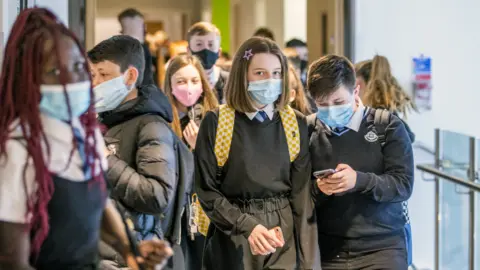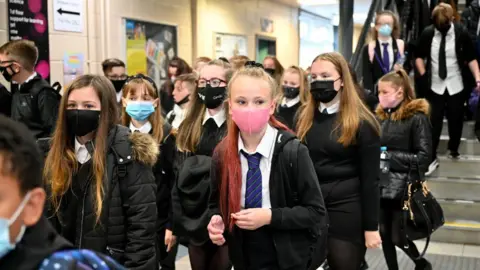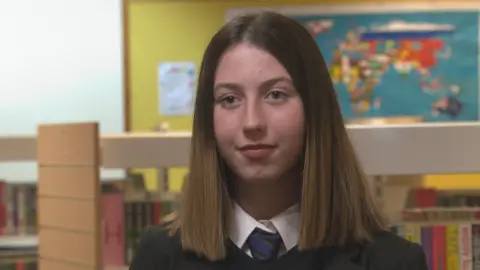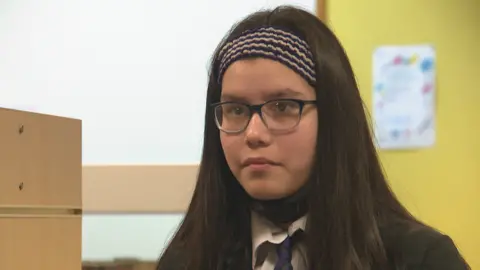Coronavirus in Scotland: Face coverings in high schools rule comes into force
 PA Media
PA MediaPupils and staff now have to wear face coverings when moving about within Scotland's secondary schools.
New rules came into force on Monday, which will also apply on school transport for all secondary pupils and primary pupils aged over five.
However, pupils will not have to wear face coverings in classrooms.
But where adults cannot keep a two-metre distance and are interacting face-to-face for more than 15 minutes, face coverings should be worn.
 PA Media
PA MediaAnnouncing the new rules for schools last week, the Scottish government said while staff and students can continue to wear face coverings if they wish, they will not generally be necessary in the classroom as there is greater scope for physical distancing and face coverings can have an impact on learning and teaching.
Education Secretary John Swinney said: "There is increasing evidence that face coverings can provide some protection for the wearer as well as those around them.
"We also know that some pupils have found it very difficult to physically distance when moving around school, which could increase the risk of transmission of the virus.
"And on school transport, as on public transport, there can be mixing between different age groups."
 Getty Images
Getty ImagesHe added: "We want to continue to protect what we have achieved in suppressing the virus and re-opening schools, and to do the best for children in schools."
Mr Swinney has stressed pupils will not be excluded from school if they do not wear a face covering.
It follows advice from the World Health Organisation that children aged 12 and over should wear face masks.

What do pupils think about wearing face coverings?

School pupil Heather told BBC Scotland she wishes she didn't have to wear a face covering but she understood why wearing them was important.
"I'd rather not wear it, but if it means keeping other people safe and myself safe then it really doesn't bother me," she said.
Heather's mum works in a care home. She said she thinks wearing a mask helps keep her mum and the residents at her mum's home safe. "It's the least I can do to help out," she added.
She advised other pupils that they should "just wear it and try to get on with your daily life".
"You'll get used to it, it's just another precaution to stop you and other people from getting it."

Panalee said it was inconvenient to have to wear a mask sometimes, for example when her glasses steam up.
But she said it was worth it because "it keeps other people I care about safe".
The inconvenience is worth it, she added, if it can help reduce the risk of the virus being transmitted.



